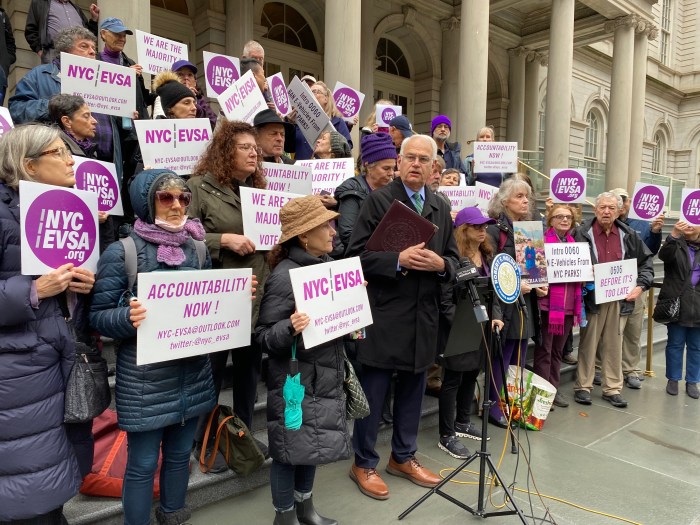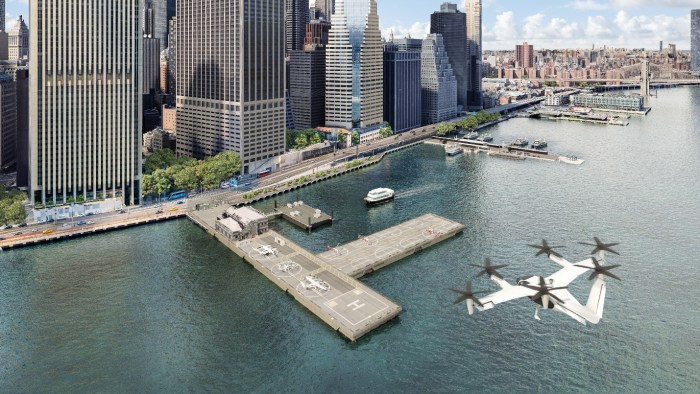The MTA should test and publicize air quality data around the shuttle bus routes to be used during the L train shutdown next April, according to a group of elected officials.
The transit authority plans to operate 80 buses per hour over the Williamsburg Bridge during the closure of L service to and through Manhattan as part of its plan to move a fraction of the roughly 225,000 daily riders who travel under the East River. In response to residents worried about the environmental impact of the shuttle buses, 21 elected officials from Manhattan and Brooklyn wrote to NYC Transit president Andy Byford last week lobbying for the air quality tests.
“We think it’s a matter of trust and public transparency,” said State Sen. Brad Hoylman, who signed the letter dated Oct. 26. “I understand that the mitigation plan is necessary, but we have to take steps to protect the public’s health and the environment.”
The buses are just one component of the L shutdown travel alternatives. The MTA’s plans also include beefed-up subway service on nearby lines, a ferry route and improved bike infrastructure. The majority of the resistance to the plan comes from residents near 14th Street, such as members of the 14th Street Coalition which opposes the city’s plans to turn the street into a bus-only corridor for 17 hours daily. Running above the L’s route in Manhattan, the city, the MTA and advocates believe the busway is needed to efficiently move commuters during the line’s 15-month shutdown.
“For folks in the neighborhood who had hoped to have no disruption at all — unfortunately, that’s not a possibility,” said Danny Pearlstein of the Riders Alliance advocacy nonprofit. “Buses are by far the most efficient way” to move displaced riders. “So folks concerned would be much more upset with an additional 40,000 cars that could come into the neighborhood in the absence of good replacement bus service.”
The Federal Transit Administration came to similar conclusions in its environmental review of the project, finding that the proposed travel alternatives “will not result in significant air quality impacts.” The alternative service plan, the FTA wrote, would keep “fewer people [from being] diverted to personal vehicles, taxis” and Ubers and Lyfts, “resulting in fewer total vehicle volumes and increased traffic speeds.”
“Safety is the first priority in everything we do; we have been working with our environmental experts on extending our environmental monitoring for next year’s alternate service and will be announcing details about it very soon, including our commitment to public accountability," said MTA spokesman Shams Tarek in a statement.
Manhattan Borough President Gale Brewer and state Assemb. Harvey Epstein also signed on to the bill — as did congressional representatives Carolyn Maloney, Jerrold Nadler, Nidia Velazquez and City Council Speaker Corey Johnson.



































